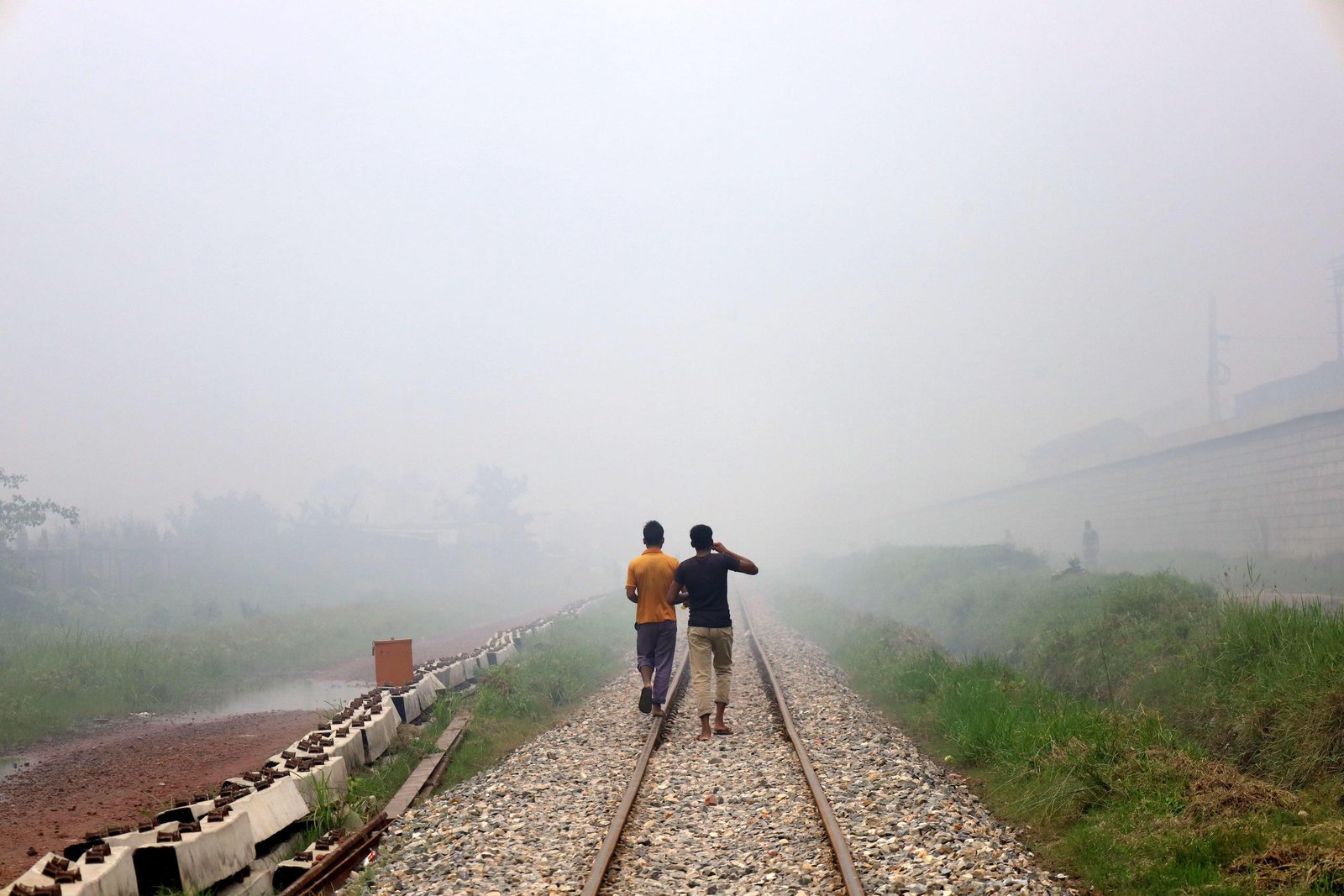Bangladesh emerged as the country with the worst air quality among 134 nations surveyed by the Swiss climate group, IQAir, in their 2023 World Air Quality Report.
In a stark revelation, Bangladesh emerged as the country with the worst air quality among 134 nations surveyed by the Swiss climate group, IQAir, in their 2023 World Air Quality Report. The findings shed light on a distressing reality: South Asia grapples with the most severe pollution globally, with Pakistan and India trailing close behind.
Insights from the Report
The report, which analyzed PM2.5 air quality data from 7,812 cities worldwide, underscores the gravity of the situation. PM2.5, fine particulate matter smaller than 2.5 microns, poses significant health risks by penetrating deep into the human respiratory system. Shockingly, only ten nations comply with the WHO’s recommended annual PM2.5 level of 5 micrograms per cubic meter, highlighting a global air quality crisis.
Bangladesh’s PM2.5 levels stand at a staggering 79.9 micrograms per cubic meter, nearly 16 times higher than WHO guidelines. Pakistan follows closely with 73.7, while India records 54.4 micrograms of PM2.5 particles per cubic meter on average annually.
Air Quality Across South Asian Cities
Within each country, air quality varies drastically from city to city. In India, industrial hubs like Begusarai in Bihar and the capital, New Delhi, suffer immensely, with PM2.5 levels far exceeding recommended limits. Similarly, Dhaka in Bangladesh and Lahore in Pakistan battle alarming pollution levels, posing grave health risks to residents.
Comparatively, cities like San Juan in Puerto Rico and Wellington in New Zealand boast significantly cleaner air, highlighting the stark contrast with South Asian urban centers.
Causes of Poor Air Quality
The report attributes South Asia’s dismal air quality to a myriad of factors, including industrial emissions, agricultural waste burning, and cremation practices. In Bangladesh, the proliferation of brick kilns, often operating illegally, exacerbates pollution. Additionally, vehicular emissions and plastic incineration contribute to the toxic air.
Geographical factors, such as the Indo-Gangetic Plain and the Himalayas, exacerbate pollution accumulation in the region, trapping pollutants emitted across vast areas.
Health Implications and Economic Disruptions
The detrimental effects of air pollution on health are well-documented. Studies link air pollution to adverse birth outcomes, reduced life expectancy, and hindered development, particularly among newborns. The Air Quality Life Index reveals alarming reductions in life expectancy across South Asian countries, underscoring the urgent need for action.
Moreover, air pollution disrupts daily life, prompting emergency measures such as school closures and public space restrictions, as witnessed in Lahore and Delhi in November 2023.
Addressing the Crisis: Calls for Government Action
The IQAir report advocates for decisive government intervention to mitigate air pollution. Recommendations include investing in renewable energy, promoting cleaner transportation, and banning harmful agricultural practices. Despite some efforts, such as coal bans in Delhi and public transport initiatives in Pakistan, more concerted action is needed.
Moreover, the lack of government-operated air quality monitoring stations underscores a critical gap in governance. Collaborative efforts between governments and institutions are imperative to tackle the crisis effectively.
Innovative solutions, such as cloud seeding in Pakistan and India, demonstrate potential but require sustained efforts and broader policy frameworks. Initiatives like Bangladesh’s brick kiln tracker offer promising avenues for enforcement and regulation.
Conclusion
As South Asia grapples with alarming levels of air pollution, urgent action is imperative to safeguard public health and mitigate economic disruptions. Governments must prioritize environmental sustainability, embracing renewable energy and stringent regulations to combat the crisis effectively. Failure to act risks dire consequences for generations to come.
